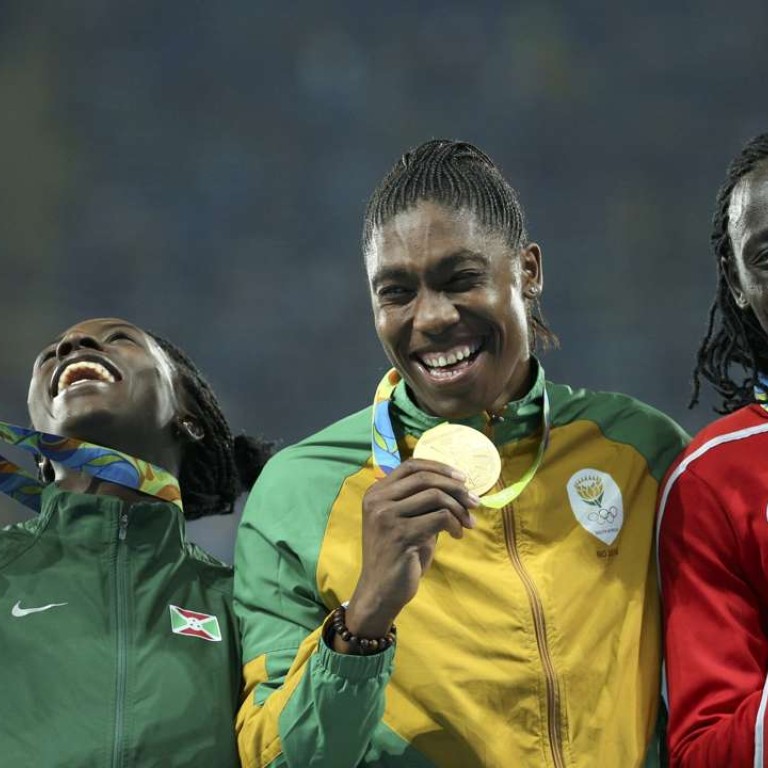
South Africa’s Caster Semenya brushes off doubters to win 800m gold in Rio as controversy murmurs on
Controversial runner produces devastating sprint finish to claim Olympic crown, four years after being denied by Russian dope cheat Mariya Savinova
Controversial South African runner Caster Semenya produced a devastating sprint finish to claim the Olympic 800-metre crown, four years after being denied gold by Russian dope cheat Mariya Savinova.
The 25-year-old 2012 silver medallist turned on the gas with 150m to go, crossing the line more than 1.20 seconds clear in one minute, 55.28 seconds at the Olympic Stadium.
Francine Niyonsaba of Burundi took silver in 1:56.49 with Kenya’s Margaret Wambui claiming bronze in 1:56.89.
WATCH: golden moments on Day 15 at the Rio Olympics
“I used to be a sprinter, I ran the 100m, 200m in high school,” Semenya said of her finish.
“It was just a fantastic race. Obviously, there can only be one winner and it turned out good for me. It wasn’t about running fast, it was about running a good race.”

Rival runners have said they want authorities to revisit rules that limit the amount of testosterone allowed in competitors.
Partially in response to those rumblings, world athletics chiefs implemented restrictions on testosterone levels in 2011.

She was still good enough to take silver behind Savinova in London however. The Russian is facing a lifetime ban from the sport after evidence implicating her in doping.

Hours before Saturday’s final, IAAF chief Sebastian Coe indicated the world body would seek to revisit the issue in future.
Semenya however would not be drawn on the issue.
“Tonight is all about performances,” she said. “We’re not here to talk about the IAAF. We’re not here to talk about speculations.

Semenya never looked in trouble in Saturday’s final, biding her time after a 57.59 opening lap.
Niyonsaba hit the front with around 300m to go but Semenya was always within striking distance.
With 150m left she made her move, calmly accelerating clear to take the lead as the race for silver and bronze unfolded behind her.
Canada’s Melissa Bishop dug deep in the home stretch but was just pipped for bronze by Wambui.

.png?itok=arIb17P0)